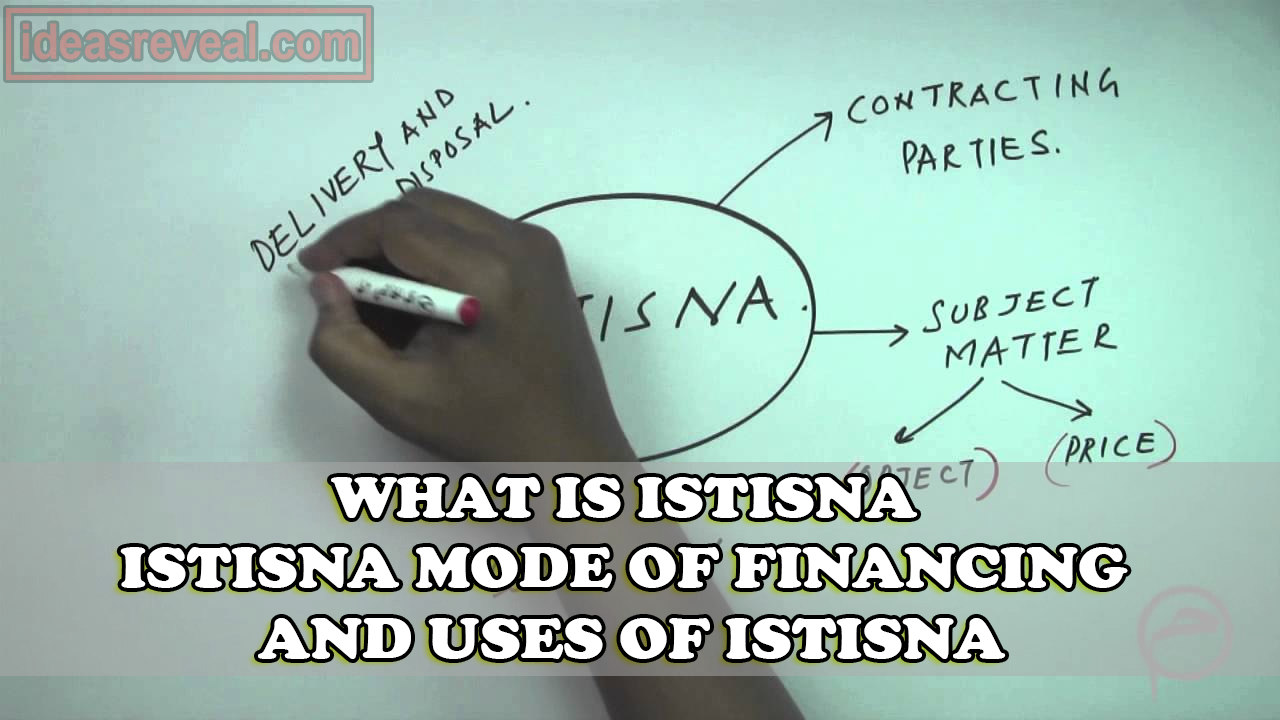Introduction
Definition of Istisna:
Istisna is a sales contract in Islamic finance where the buyer orders a seller
to manufacture a specific item with agreed-upon specifications. It's unique
because the item doesn't exist yet at the time of the contract.
Brief Overview:
Originating from Islamic jurisprudence, Istisna offers a solution to
finance manufacturing or construction projects while staying compliant with
Sharia law, which prohibits charging or paying interest.
Istisna in Islamic Finance
The Importance of Istisna:
In the realm of Islamic finance, Istisna provides a means for businesses to
acquire goods or services without infringing upon religious principles. It
allows for innovation and growth while adhering to religious ethics.
Basic Principles:
Istisna is not just about financing; it revolves around trust. The buyer and
seller enter a mutual agreement where specifications, price, and delivery time
are discussed and agreed upon.
Differences between Istisna and Other Financing Modes
Comparing with Murabaha and Ijara:
While Murabaha is about selling an already existing item at a markup, and Ijara
deals with leasing, Istisna focuses on products that are yet to be produced or
constructed.
Key Distinctions:
One fundamental difference is the flexibility in payment terms with
Istisna. Payments can be made in installments or upon delivery, depending on
the agreement.
The Istisna Contract: Deep Dive
Parties Involved:
Typically, there's the buyer (Mustasni) who requests the manufacturing, and the
manufacturer or seller (Sani) who creates the product.
Payment Terms:
The beauty of Istisna is its flexibility. Payments can be deferred until the
project's completion or can be structured in stages aligning with progress
milestones.
Uses of Istisna
Manufacturing and Construction:
From building houses to producing machinery, Istisna is versatile. It
allows for customized production based on buyer specifications.
Real-life Examples:
Consider a business wanting a specialized piece of equipment. Instead of a
traditional loan, they can use Istisna to have it manufactured without
violating Sharia principles.
Benefits of Istisna Financing
Flexibility in Payment:
As highlighted, Istisna contracts can be tailored to suit both parties' needs,
making it a versatile tool in Islamic finance.
Customized Goods:
Istisna thrives in scenarios where specific, tailor-made goods are required,
allowing for customization unlike other financing methods.
Challenges and Concerns
Potential Risks:
Like all contracts, there's risk. Delays or defaults in delivery can lead to
disputes.
How They're Addressed:
To mitigate such risks, it's crucial to draft clear contracts, detailing
remedies and penalties for non-compliance.
Conclusion
Istisna, with its unique approach to financing, offers a Sharia-compliant
method to facilitate production and construction. It underscores the importance
of trust, mutual understanding, and adaptability in financial agreements. For
businesses looking for an alternative to interest-based financing, Istisna
provides a solution that's both ethical and flexible.
FAQs
1.
What's the main difference between Istisna
and conventional loans?
Istisna is interest-free and based on a product's manufacturing, while
traditional loans involve interest and are not necessarily tied to a product.
2.
Can Istisna be used for any product?
It's primarily used for specific, tailor-made products or construction
projects.
3.
Are there any penalties in Istisna for late
delivery?
Contractual terms will dictate penalties, and it's essential to have clear
terms to avoid disputes.
4.
How is the price determined in Istisna?
The price is mutually agreed upon by both parties based on the product's
specifications and other relevant factors.
5.
Is Istisna limited to Islamic countries?
While it originates from Islamic principles, Istisna is used in many countries,
recognizing its benefits and ethical approach.






0 Comments